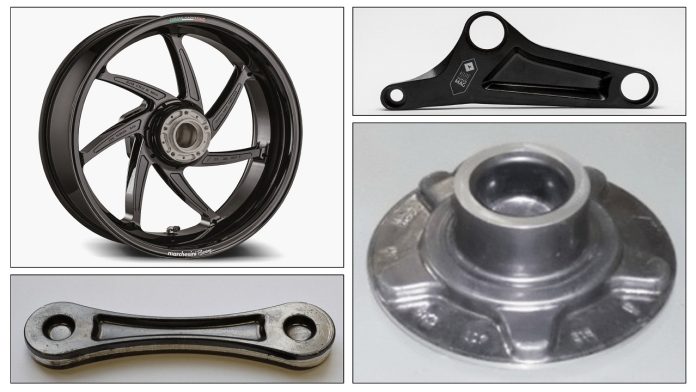In recent years, the forging process has gained prominence in the manufacturing industry, particularly in the production of eBike wheels. This surge in popularity is primarily attributed to the numerous advantages offered by forging technology. Unlike traditional manufacturing methods, forging enables the production of high-strength, high-precision, and high-performance components. This article explores the various quality assurance measures implemented in the forging of eBike wheels, emphasizing the importance of quality in the production of these critical components. Moreover, discover the exceptional quality and precision of forged eBike wheels on this page here, where innovation meets performance.
Material Selection
The foundation of quality in eBike wheel forging lies in the careful selection of materials. The choice of material significantly impacts the performance, durability, and overall quality of the finished product. Typically, eBike wheels are crafted from aluminum or steel alloys. Aluminum is favored for its lightweight strength and corrosion resistance, making it an ideal choice for eBike wheels that need to be both sturdy and lightweight. On the other hand, steel, although heavier, is valued for its durability and strength, making it suitable for heavy-duty eBike applications.
Heating and Forging
One of the key steps in the quality assurance process for forging eBike wheels is the heating and forging phase. The selected material is heated to a precise temperature to achieve the desired material properties. Professional forging equipment and technology are employed to shape and structure the material accurately. The hammering and pressure applied during this phase transform the material into the desired wheel component.
Subsequent Treatment
Following the forging process, eBike wheel components undergo a series of subsequent treatments to enhance their quality further. These treatments may include quenching, annealing, sandblasting, polishing, and other processes. Each of these treatments serves a specific purpose. Quenching, for instance, improves the component’s hardness and toughness, while annealing reduces internal stress and improves overall structural integrity. These treatments collectively ensure that the eBike wheels meet stringent quality standards.
Quality Inspection
Quality assurance in eBike wheel forging culminates in thorough quality inspections. Various tests and inspection methods are employed to assess whether the components meet the required specifications and standards. Key indicators such as dimensions, strength, surface quality, and overall performance are rigorously assessed during this phase. Any discrepancies or defects are identified and rectified to ensure that only high-quality components are released into the market.
Precision Forging and CNC Finishing
Precision forging is a critical aspect of quality assurance in eBike wheel production. State-of-the-art CNC finishing processes are employed to achieve precise and consistent component dimensions. Precision forging ensures that the components are uniform in shape and size, eliminating variations that can compromise performance and safety.
Advanced Heat Treatment Technology
Quality assurance measures in eBike wheel forging also involve the application of advanced heat treatment technology. Heat treatment is essential for optimizing the material properties of the forged components. This technology enhances the components’ strength, durability, and resistance to wear and tear, ultimately ensuring the wheels’ long-term performance.
Conclusion
Quality assurance measures are paramount in the forging of eBike wheels. These measures encompass every stage of the manufacturing process, from material selection to precision forging, subsequent treatment, and thorough quality inspections. The pursuit of quality is not only a commitment to producing reliable and durable eBike wheels but also a dedication to ensuring the safety and satisfaction of eBike riders. As the eBike industry continues to grow, the role of forging technology in producing high-quality wheels remains pivotal, contributing to the overall success of this eco-friendly mode of transportation.










